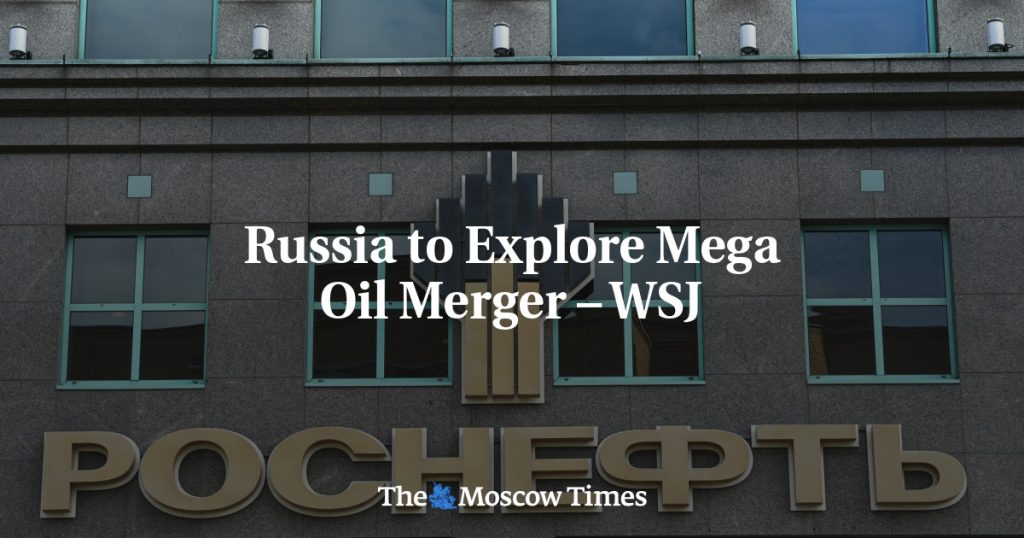Moscow is considering merging its three largest oil companies—Rosneft Oil, Gazprom Neft, and Lukoil—into a single mega oil producer. This merger would create the world’s second-largest oil producer, behind Saudi Arabia’s Aramco, and significantly increase Russia’s ability to charge customers higher prices in countries like India and China. However, while talks have taken place, there are obstacles that could prevent the deal from happening, including opposition from company executives and the need to find the cash to pay out Lukoil shareholders. Despite the speculation, a Kremlin spokesperson stated that the administration had no knowledge of a deal, and a Rosneft spokesman denied the reports as false.
The potential merger of the oil companies is seen as a strategic move by the Russian government to use the energy sector as a cash cow for funding its activities in Ukraine. With oil and gas making up a significant portion of Russia’s economy and federal revenue, having a consolidated energy giant would help the country better withstand Western sanctions. However, the consolidation of power into one massive company raises concerns about the potential concentration of power in the hands of a single individual, given that the leaders of these companies are already influential figures in Russia. Supporters of the plan believe that a combined company would be more profitable, but critics point to the risks associated with such a move.
The aim of creating a mega oil producer in Russia highlights the country’s continued reliance on its energy resources as a source of economic strength and geopolitical leverage. The energy sector has long been a critical component of the Russian economy, and controlling a large portion of the global oil market would further solidify Russia’s position on the world stage. However, the move could also face challenges in terms of regulatory approvals, attracting investor support, and managing the complex logistics of merging three major companies into one cohesive entity. The potential benefits of such a merger need to be weighed against the risks and obstacles that may arise.
The situation underscores the complex interplay between politics, economics, and energy in the global landscape. Russia’s strategic moves in the energy sector have broader implications for international relations, particularly in light of ongoing geopolitical tensions and conflicts. The potential formation of a mega oil producer in Russia could reshape the dynamics of the global oil market, with ripple effects on energy prices, supply chains, and geopolitical alliances. As such, the outcome of these discussions and any subsequent actions taken by the Russian government will be closely watched by industry experts, policymakers, and stakeholders around the world.
In the face of challenges to independent journalism in Russia, support for outlets like The Moscow Times becomes crucial in preserving open, unbiased reporting on important issues like the potential oil company merger. The ability of journalists to provide accurate information and analysis in a challenging political environment is essential for promoting transparency, accountability, and informed decision-making. By supporting independent media organizations, individuals can play a role in defending press freedom and upholding the principles of a free and democratic society. As the situation continues to evolve, the role of journalism in providing reliable information and fostering public discourse remains paramount.














